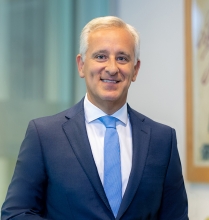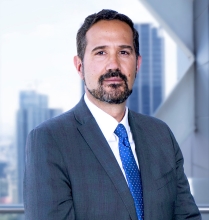International Arbitration Newsletter - June 2019 | Regional Overview: Middle East and Africa
The most relevant updates from Middle East and Africa from the global International Arbitration and ADR practice group at Garrigues.
IRAQ
Canadian engineering company seeks ICC award enforcement against Iraqi state entity
Canadian engineering company OGI Group Corporation has filed a petition with the US District Court for the Southern District of New York to confirm and enforce the US$10 million ICC award obtained against Iraqi state-owned company SCOP – an oil projects company wholly owned by Iraq’s ministry of oil in a dispute over the development of an oil field in southern Iraq.
The dispute concerns withheld payments under a US$176 million contract for the supply of design and engineering services and materials for the development of the Hamrin oil field in Basra.
The ICC tribunal found that SCOP’s actions, by paying the instalments without asking for technical documents or raising any objections, amounted to a “tacit” acceptance of OGI’s conduct, and ordered SCOP to pay OGI outstanding amounts of just over US$9.5 million.
MAURITIUS
Mauritius Supreme Court sets aside SIAC award against state-owned company
The Supreme Court of Mauritius has set aside a US$120 million SIAC award against state-owned trading company Mauritius’ State Trading Corporation (STC) after finding that it was based on a contract obtained in “flagrant and concrete breach” of public procurement laws.
The award dated 2017 found STC liable in a dispute with shipping company Betamax, which is part of a conglomerate owned by Mauritius’ Bhunjun family. The dispute relates to a 2009 contract of affreightment between Betamax and STC, which is the trading arm of the Mauritian government responsible for the import of commodities.
Under the 15-year contract, Betamax agreed to transport petroleum from the Indian city of Mangalore to the Mauritian capital of Port Louis using its new tanker, the Red Eagle. The contract was worth around US$230 million. Following a change of government in 2014, STC announced it was terminating the contract on the grounds that it had been awarded in breach of Mauritius' Public Procurement Act 2006 (PPA). Betamax launched a US$170 million SIAC claim against STC in 2015, arguing that the contract complied with Mauritian law and was wrongfully terminated. The seat of arbitration was Mauritius.
In his 2017 award, the sole arbitrator found he had jurisdiction over the dispute and that STC was exempt from the PPA at the material time. He found the contract was wrongfully terminated and ordered STC to pay US$120 million in damages plus costs and interest.
The state entity argued that the subject matter of the dispute was not arbitrable as it concerned public procurement; that the arbitration agreement was not valid under Mauritian law because the contract was illegal; and that the award was contrary to public policy.
In its decision, the Supreme Court said it was not in dispute that the contract was not awarded in compliance with the PPA, which requires that the Central Procurement Board (CPB) approve major contracts with public bodies. The court concluded that the contract was solicited and signed by STC without the approval of the CPB and was therefore “illegally awarded.”
MOROCCO
Moroccan consortium files for rare ICSID conciliation proceedings against Cameroon
Moroccan-owned consortium La Camerounaise des Eaux (CDE), which is led by the Moroccan state-owned National Office of Electricity and Drinking Water (ONEE) and includes three privately owned Moroccan shareholders: infrastructure companies MedZ and Delta Holding and consultancy firm Engima, has commenced ICSID conciliation proceedings against Cameroon and its state-owned water infrastructure body Cameroon Water Utilities Cooperation (Camwater), after the latter refused to extend its ten-year concession to supply drinking water in the central African state.
CDE alleges breach of a 2008 contract for the production and distribution of drinking water in Cameroon. The contract was granted by Camwater, a public asset holding company created in 2005 to manage water infrastructure and establish partnerships with private investors.
It is understood that CDE is claiming approxiamtely US$172 million because of the “breakdown of economic and financial balance” of the contract and unpaid water bills.
Morocco hit by treaty claim on road tunnel project
A major Italian construction company, Impresa Pizzarotti & C, has filed an ICSID claim worth around €50 million against Morocco under the 1990 Italy-Morocco bilateral investment treaty concerning a project to build a motorway tunnel under a historical citadel.
The dispute relates to the construction of twin tunnels connecting a coastal entry road with the historical centre of Rabat, passing underneath a 1,000-year-old citadel known as the Kasbah of Oudayas. Pizzarotti led a consortium that won the contract for the project from the state-run Bouregreg Valley Development Agency, or AAVB, following an international tender. It began the work in 2007 but the project encountered delays, eventually opening to traffic in 2011.
In its ICSID claim, the company alleges that Morocco has breached BIT provisions including the fair and equitable treatment (FET) and expropriation standards. The FET claims include breach of the claimant’s legitimate expectations through the state’s alleged failure to honour certain promises made in memoranda of understanding. Pizzarotti also alleges that the conduct of the Moroccan litigation amounted to a denial of justice.
UNITED ARAB EMIRATES
Two Emirati energy companies win LCIA award in Kurdistan dispute ICSID claim on failed artificial archipelago project
Two Emirati energy companies Dana Gas and its UAE partner Crescent Petroleum have prevailed in an LCIA claim against its consortium partner, Hungary's MOL Group, that contested their decision to settle a US$39 billion dispute with the Kurdistan regional government of Iraq two years ago.
The dispute arose from a 2017 agreement under which Dana, Crescent and Pearl settled a prior LCIA arbitration against the Kurdistan regional government concerning its rights under a long-term development and marketing contract for the Khor Mor and Chemchemal gas fields.
Under the settlement, Kurdistan agree to pay Pearl US$1 billion in compensation, extend the lifetime of the contract from 2032 to 2049, award the consortium new blocks in one of the gas fields and adjust Pearl's entitlement to future revenues.
At the time of the settlement, an LCIA tribunal had already upheld the government’s liability in a claim relating to the development of the fields, but had still to decide on quantum claims valued at between US$26.5 billion and US$39 billion.
ZAMBIA
Zambia faces new claim from Vedanta Resources on mining dispute
UK metals and mining group Vedanta Resources has submitted a notice of dispute to Zambian state-owned entity ZCCM Investment Holdings under their 2004 shareholders’ agreement in response to efforts to put its copper mining business in the country into liquidation.
He dispute relates to Konkola Copper Mines (KCM), one of Africa’s largest copper producers and to ZCCM’s initiation of winding-up proceedings against KCM. Vedanta has an 80% stake in the company, while ZCCM holds a roughly 20% stake.
Vedanta accuses ZCCM of breaching the shareholders’ agreement by “filing and persevering with its petition to wind up KCM” and failing to seek to have the dispute resolved by arbitration. It also alleges damage caused to KCM’s business as a result of the winding-up proceedings.
Contacts



-
+52 55 1102 3570
-
+52 81 8153 3900
-
+52 442 296 6400
-
+57 601 326 69 99



